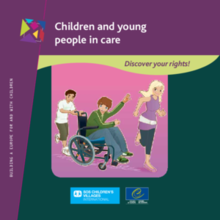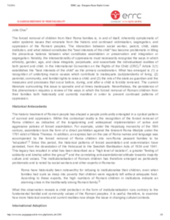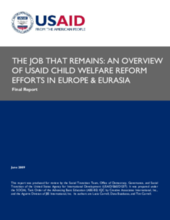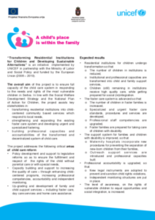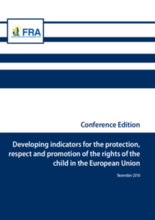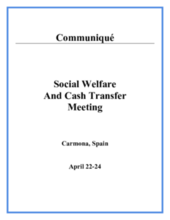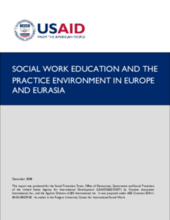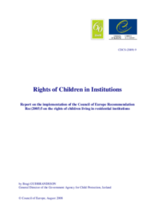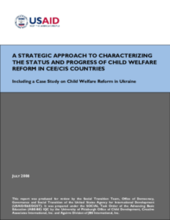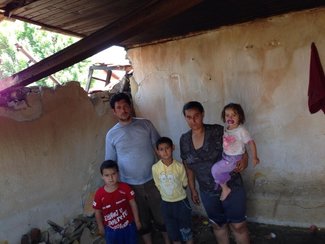

Displaying 501 - 510 of 544
Youth-friendly information booklet addressed to children and young people in alternative care.
Explores particular vulnerabilities that arise for Roma children and families in regards to care as a result of social marginalization
Examined the eight countries in which USAID supported significant child welfare reform programs: Armenia, Azerbaijan, Belarus, Bosnia-Herzegovina, Georgia, Romania, Russia, and Ukraine. The paper discusses population issues, the current system of child welfare, USAID-funded activities, lessons learned, and best practices.
Outlines the project aims, critical areas of child care reform, and expected results of the Serbian initiative: “Transforming Residential Institutions for Children and Developing Sustainable Alternatives”
Outlines the development of a common set of indicators for EU member states to measure children's rights and collect data.
Experts gathered in Carmona Spain to examine the results of policy relevant systemic reviews on social welfare and cash transfers. Meeting delegates explored the findings of reviews on integration of social welfare services and cash transfers in Ghana, Chile, Zimbabwe, Malawi and Kenya.
The purpose of this study is to inform stakeholders about the current status of social work in the region, describe the practice environment, identify gaps between what is expected of social workers and the reality, provide examples of best practices, and make recommendations for furthering the development of social work in the region.
This report provides an assessment of the current situation with regards to rights of children in institutions in 42 Council of Europe member states.
In this meta-analysis of 75 studies on more than 3,888 children in 19 different countries, the intellectual development of children living in children's homes (orphanages) was compared with that of children living with their (foster) families.
The purpose of this report is to create a strategy for assessing the status and progress of child welfare reform in CEE/CIS countries using the best available quantitative and qualitative information.

